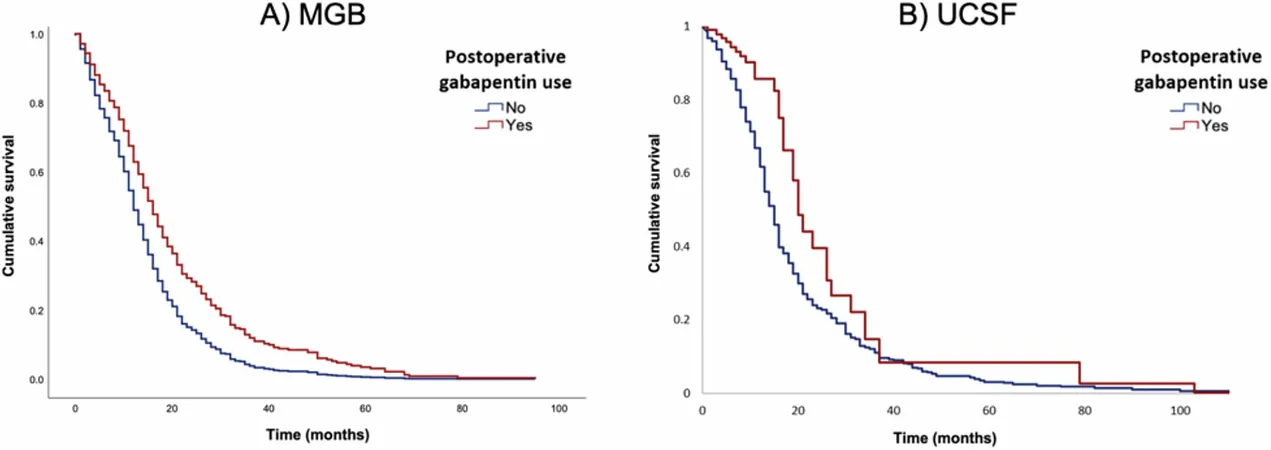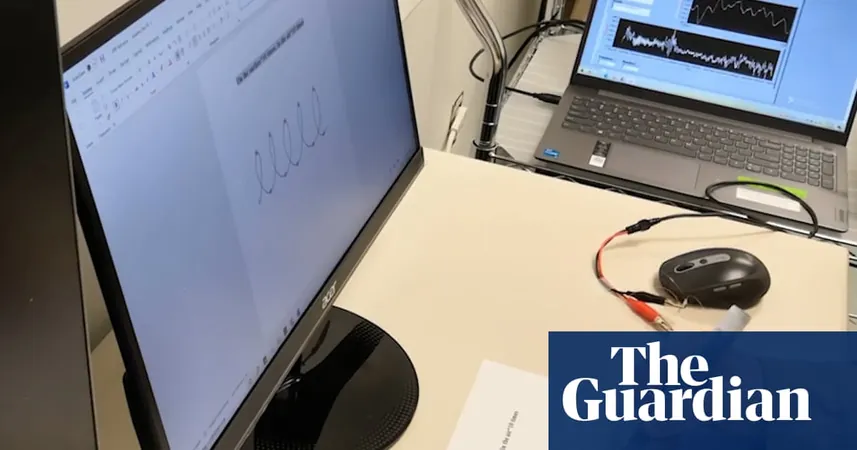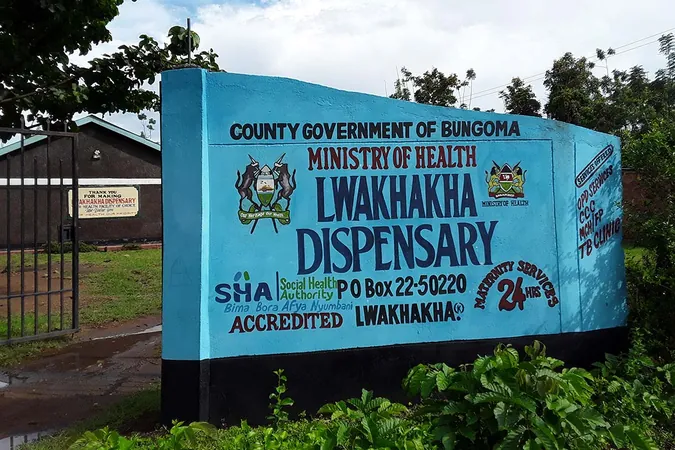
Breakthrough Study Reveals Gabapentin Can Extend Life for Glioblastoma Patients
2025-05-15
Author: Arjun
Game-Changing Findings in Glioblastoma Treatment
In a groundbreaking study from Mass General Brigham, researchers have found that gabapentin, a widely used anti-seizure and pain medication, may significantly enhance survival rates for patients battling glioblastoma (GBM)—the deadliest and most common type of brain cancer in adults. This research, which appears in the reputable journal Nature Communications, provides newfound hope for those affected by this aggressive disease.
Hope Amidst Despair: The Challenge of GBM
Glioblastoma remains a relentless adversary, affecting approximately 12,000 people in the United States each year. Despite advances in cancer treatment, patients diagnosed with GBM have seen little change in survival rates over the past few decades, typically living just 12 to 14 months post-diagnosis, with even shorter lifespans after recurrence.
Revolutionary Insights Sparked by Cancer Neuroscience
The study's conclusions stem from pioneering research in cancer neuroscience, which explores how tumors hijack neural systems to sustain their growth. A notable study in 2023 unveiled thrombospondin-1 (TSP-1), a protein involved in the development of neural connections, as a critical player in GBM progression. Interestingly, using gabapentin in mouse models showed promise in disrupting the harmful influence of GBM on neurons.
Compelling Data Behind Gabapentin
Curious about these findings, lead researcher Dr. Joshua Bernstock and his team analyzed data from 693 GBM patients at Mass General Brigham. Astonishingly, those who were already taking gabapentin, often for nerve pain, boasted a median survival of 16 months, in stark contrast to just 12 months for those not on the medication—a statistically significant difference.
Validation Across Institutions
Intrigued by the initial findings, Dr. Bernstock collaborated with Dr. Shawn Hervey-Jumper's team at UCSF, where they found similar results among a cohort of 379 newly diagnosed GBM patients. The UCSF group revealed that gabapentin users survived an impressive average of 20.8 months compared to just 14.7 months for non-users, reinforcing the study's optimistic outlook.





 Brasil (PT)
Brasil (PT)
 Canada (EN)
Canada (EN)
 Chile (ES)
Chile (ES)
 Česko (CS)
Česko (CS)
 대한민국 (KO)
대한민국 (KO)
 España (ES)
España (ES)
 France (FR)
France (FR)
 Hong Kong (EN)
Hong Kong (EN)
 Italia (IT)
Italia (IT)
 日本 (JA)
日本 (JA)
 Magyarország (HU)
Magyarország (HU)
 Norge (NO)
Norge (NO)
 Polska (PL)
Polska (PL)
 Schweiz (DE)
Schweiz (DE)
 Singapore (EN)
Singapore (EN)
 Sverige (SV)
Sverige (SV)
 Suomi (FI)
Suomi (FI)
 Türkiye (TR)
Türkiye (TR)
 الإمارات العربية المتحدة (AR)
الإمارات العربية المتحدة (AR)